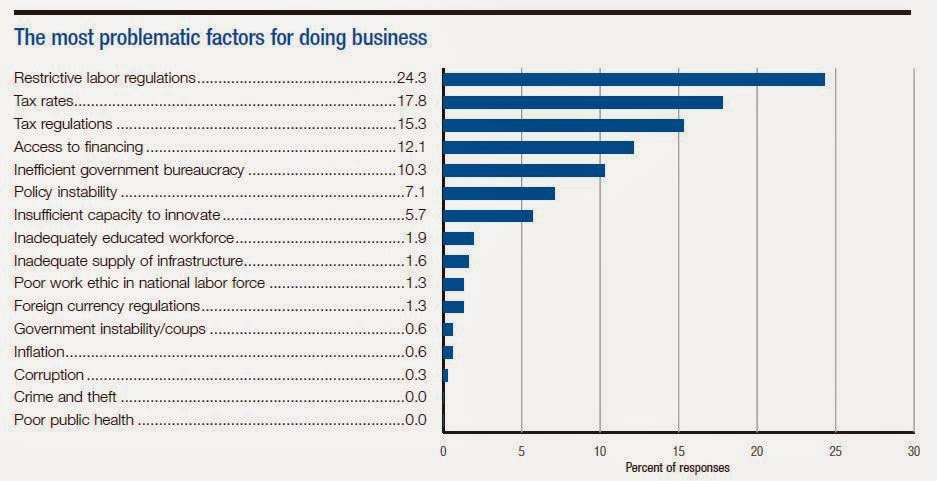By coincidence the Peterson Institute for International Economics in Washington had a conference last month on 'Making Sense of the Productivity Slowdown' which covered some of the same landscape. One of the presentations in particular was quite suggestive about one of the intangible knowhows we could do with a bit more of - and that's managerial skill.
The LSE's John Van Reenen was talking about 'Productivity Issues: Past, Present & Future'. He's been working with a sophisticated index of management expertise: you can find out more about it at the World Management Survey website, but in essence it grades companies, on a 1 to 5 scale, on how well they do 18 different management things. Van Reenen (and others) have then gone on and looked at the links between management expertise, as measured, and various financial and economic outcomes. They are generally sizeable: here, for example, is the global link between a firm's Total Factor Productivity (TFP) and the quality of its management.
TFP, by the way, for folks not versed in the black arts, is the bit of a firm's performance left over after you've accounted for the contributions of its workforce, its employees' skills, and its capital spending. At one level it means "anything we can't get a handle on", but it's also often used as a shorthand for important intangibles like management quality, social skills and "the way we do things round here", and smart processes.
In this latest outing, he's had a go at explaining differences in countries' TFP: if you make a plausible assumption about management's importance in overall TFP, and you have measures of TFP and management expertise, you can estimate how much of countries' TFP differences is down to differences in management. Often, in these kinds of surveys, New Zealand tends to be among those absent, but for once we're in the numbers, and here are the results. Differences in TFP are measured as a percentage of the US level. I've circled NZ in red.
Now, I think we can all agree that this is somewhere down the more heroic end of estimation, and also that there are the usual issues of correlation and causation. But we can also agree that rough and ready estimates, that are approximately in the right sort of area, are also useful things to have.
And I think there is something to this one. The overall pattern looks realistic: poorer countries at lower levels of development - the ones on the left with, say, less than 20% of America's TFP - tend to have bigger issues to confront than the relative quality of their management, and sure enough the contribution of management to the development gap tends to be low. But at higher levels of development, where you've got higher levels of resources available, how you manage them becomes more important.
On these estimates, 43.5% of the productivity gap between us and the States is down to our relatively weak management capabilities (and it's interesting that Australia, with a somewhat similar business environment to ours, comes out with a similar number, at 45%). These numbers also sit comfortably with other evidence that our management capabilities aren't that flash: for example, the Productivity Commission's services inquiry found some data that suggested that low ICT uptake appeared to be linked with a "couldn't be arsed" approach by business owners (as I posted at the time).
Even if the proportion is uncertain - let's just say it might be somewhere between a quarter and a half - it makes for a significant line of attack if we're thinking about better management's potential contribution to narrowing the productivity gap with overseas. There were some neat ideas at this week's productivity symposium - but they're not going to get the traction they should if our business managers are slower to run with them, or worse at execution, than their overseas competitors.









